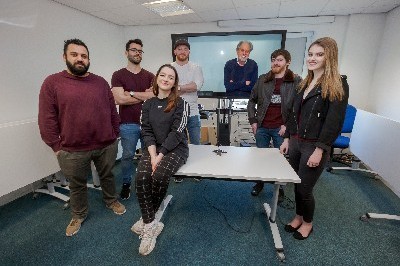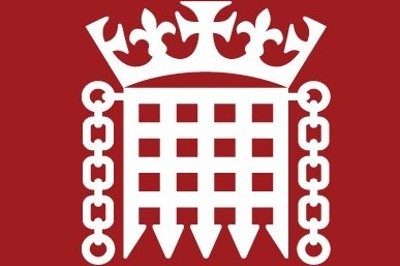Source: https://www.ucc.ie/en/fmt/film/puttnamscholarship/
The Puttnam Scholars Programme 2020-2021
Eight UCC students have been awarded the prestigious title of Puttnam Scholar. The Puttnam Scholarship programme offers UCC students from any discipline the opportunity to work with and learn from digital education pioneer Lord David Puttnam, Oscar-winning producer of films including Chariots of Fire, The Mission, The Killing Fields, and Midnight Express. The scholars come from a diverse range of academic backgrounds including Neuroscience, Youth & Community Work, Medicine, Creative Writing, Digital Humanities and Film & Screen Media.
Puttnam Scholarship recipients 2020 – 2021
Geraldine Boyle is a Masters student in Film and Screen Media. With a BA in Photography, her work has been exhibited at the Royal Ulster Academy on two separate occasions. Originally from Belfast, she has spent the last five years working for the BBC in London, specialising as a Drone Operator. She has filmed for series such as Panorama and Gardeners’ World, but hopes to expand her knowledge within the Irish film industry, and become an established filmmaker.
Colette Forde is currently in her final year studying Youth and Community Work and founded Teen Speak to destigmatize therapy and promote help-seeking behaviours in young people. Her debut one-woman show innit, which she also starred in, met with sell-out success in Cork and had a four-week run Off-Broadway, New York, providing a platform to address her audiences fervently about the need for a cultural change in mental health attitudes. Her film, Dovetail, was recently funded by the Screen Skills Ireland and Bow Street Academy's: Actor as Creator grant. She is “beyond thrilled to avail of this incredible opportunity.”
Mahito Indi Henderson is a postgraduate student in the MA in Creative Writing programme at University College Cork and a 2020 GOI-IES awardee. Hailing from Boulder, Colorado, USA, he has received various grants to pursue filmmaking, creative writing, and painting. In 2017 he received a Media Arts Grant to write and direct a short film, Final Sprint, and in 2019 he was awarded a Summer Undergraduate Research Grant for a series of oil paintings, illustrations, and short stories. As a dual citizen of Canada and the United States, he is interested in the intersection of art, culture, and racial identity.
Harry McCann is an award-winning entrepreneur and final year student of the BA in Digital Humanities & Information Technology at UCC. He has also been a significant voice in youth affairs and in the media. He is a regular contributor to several national television and radio shows and an op-ed columnist with the Irish Independent and thejournal.ie. Harry was awarded a Quercus Scholarship for Entrepreneurship and Innovation by UCC.
Abnoos Mosleh-Shirazi is a medical student from Canada who has always had a passion for cinema: “I grew up watching the Academy awards ever since I could remember. I would watch all the nominated movies with my family and root for my favourites. I’ve learned a lot about life, emotions, personalities and relationships through cinema. Though I plan to become an anaesthesiologist, I really wanted to pay homage to my passion for movies while I can with this amazing opportunity, the Lord Puttnam Scholarship.”
Máire Murphy is a final year student in the BA Film and Screen Media, with a minor in English. She is hoping to work in the field of representation, creating content in different forms of media. With a background in multi-instrumentalism, activism, seamstress work, performing, debating and writing, she hopes to approach her work with a cross-disciplinary attitude to creativity.
Ramish Qayyum is a final year Neuroscience student. Born in Pakistan, he moved to Ireland when he was seven and now lives in Fermoy, Co. Cork. ”Neuroscience is an exciting and challenging field of study and as passionate as I am about my course I am just as passionate about creative writing and filmmaking and so I have always tried to develop and sustain both my academic and creative interests.”
Célem Roche Deegan is a final year undergraduate student in Film & Screen Media, with a minor degree in Economics, from New Ross, Co. Wexford. ”Growing up, I was very much community-orientated. I played several sports and was an active sea scout for over eleven years. I recently completely a year of study in Leeds Trinity University, where I studied modules in public relations, marketing, tv genre, tv production, radio production and film. I hope to combine my knowledge and deep love for film with many years’ experience of successful team-orientated projects.“











